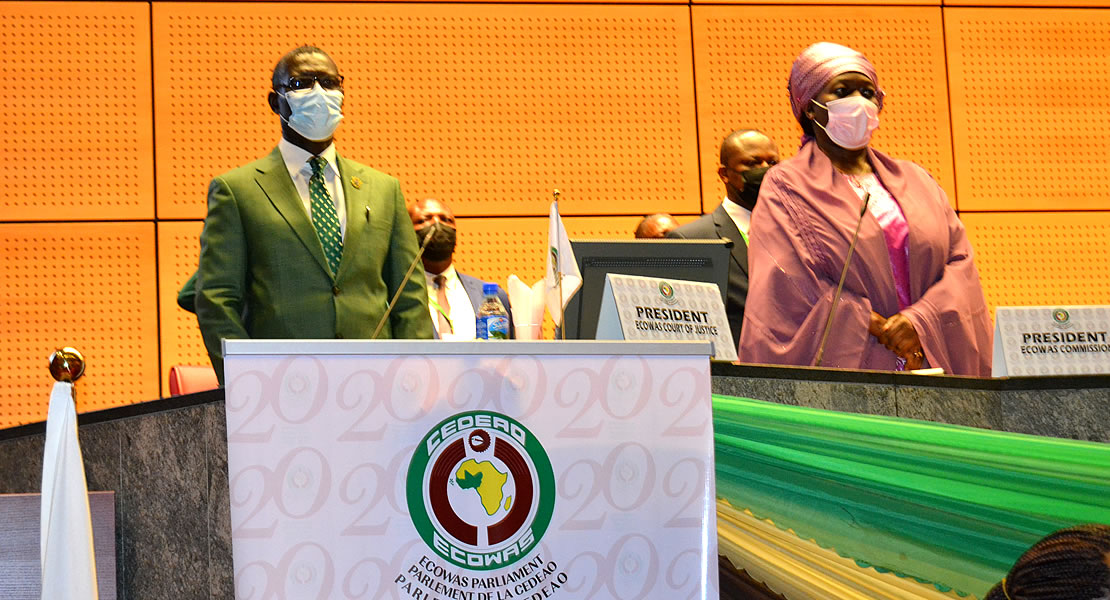
In his goodwill message at the opening ceremony of the ECOWAS Parliament’s 1st 2021 Ordinary Session ongoing in Abuja, Federal Republic of Nigeria, the President of the ECOWAS Court of Justice, Justice Edward Amoako Asante has called on ECOWAS Members of Parliament to put a little pressure on their various governments to setup mechanisms to implement the decisions of the court.
President of the ECOWAS Court of Justice said that “under Article 24 of the 2005 Supplementary Act on the court, Members States are required to designate the competent national authority for the enforcement of the decisions of the court.”
So far, he said, that only six (6) member states: Burkina Faso, Ghana, Guinea, Mali, Nigeria and Togo, have designated their focal points. “We therefore need the support of our Honourable ECOWAS Parliamentarians, particularly those from member states that have not done so, to facilitate this enforcement process by ensuring that their states setup the appropriate mechanisms for the enforcement of the decisions of the court,” Justice Edward Amoako Asante.
Justice Asante added by reminding regional MPs to work swiftly on addressing the challenge of enforcing the decisions of the ECOWAS Court which he said if not addressed “could affect its capacity to effectively play its role in the integration process”, stating that “the court plays a strategic role in our regional integration process as it assists Members States to build a culture of democracy and good governance by helping to strengthen human rights protection and respect for the rule of law.”
He advanced that the community’s court is committed to these objectives, under Article 4(g) of the ECOWAS Revised Treaty which says that the recognition, promotion and protection of human and peoples’ rights should be done in accordance with the African Charter on Human and Peoples’ Rights.
As a result, Justice Asante entreated the ECOWAS MPs that, as stakeholders, they must all rise to defend the integrity of the Court through the enforcement of its decisions as integration is impossible without s strong protection of human rights for which the citizens are the ultimate beneficiaries.”
Kwaku Sakyi-Danso/Ghanamps.com/Abuja